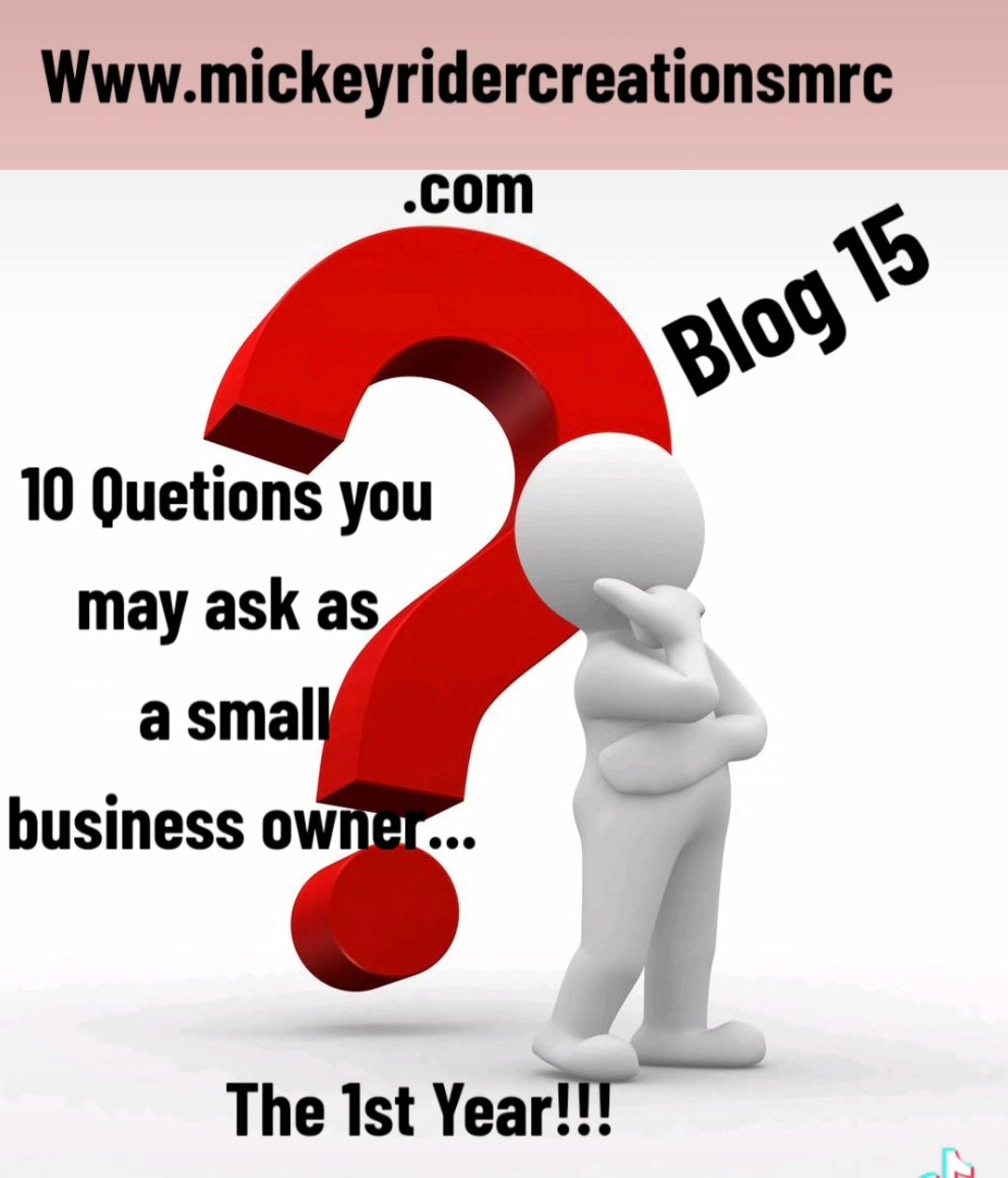
10 Questions A Small Business Owner May Ask Within The First Year Of Business
1. What are my primary goals and objectives for the business, and how can I achieve them?
Answer: Your primary goals and objectives may vary depending on your business and industry. Some common goals include increasing revenue, expanding your customer base, improving brand recognition, and reducing expenses. To achieve these goals, you may need to develop a solid business plan, establish effective marketing strategies, and consistently monitor and evaluate your progress.
2. What is my target market, and how can I effectively reach and engage with them?
Answer: Identifying your target market is critical for your business success. You need to understand your customers' needs, preferences, and behavior to create products or services that appeal to them. You can reach and engage with your target market through various channels such as social media, email marketing, advertising, or by attending relevant events.
3. What are the best marketing strategies and channels to use for my business?
Answer: The best marketing strategies and channels depend on your target audience, budget, and goals. Some effective marketing strategies for small businesses include social media marketing, email marketing, search engine optimization (SEO), content marketing, and paid advertising.
4. What are my key competitors doing, and how can I differentiate myself from them?
Answer: Analyzing your competitors' strengths and weaknesses can help you identify opportunities and threats in the market. You can differentiate yourself from your competitors by offering unique value propositions, providing exceptional customer service, and developing innovative products or services.
5. What are the key financial metrics I need to track to ensure my business is profitable and sustainable?
Answer: Some key financial metrics to track include revenue, profit margins, cash flow, and return on investment (ROI). You should also track your expenses to ensure you are not overspending or undercharging for your products or services.
6. How can I manage my cash flow effectively to avoid running out of money?
Answer: To manage your cash flow effectively, you need to create a cash flow forecast, set up a budget, and monitor your expenses regularly. You can also negotiate better payment terms with your vendors or suppliers and offer incentives to customers who pay early.
7. What are my staffing needs, and how can I find and retain the right employees?
Answer: Your staffing needs will depend on the size and scope of your business. You can find and retain the right employees by creating a positive work culture, offering competitive salaries and benefits, and providing opportunities for career development and growth.
8. What are the legal and regulatory requirements for my business, and how can I stay compliant?
Answer: Depending on your industry and location, you may need to comply with various legal and regulatory requirements. You can stay compliant by understanding the laws and regulations that apply to your business, obtaining necessary licenses and permits, and seeking legal advice if needed.
9. What technology solutions do I need to run my business efficiently?
Answer: The technology solutions you need will depend on your business needs and budget. Some common technology solutions for small businesses include accounting software, customer relationship management (CRM) software, and project management tools.
10. How can I continually improve and innovate my products or services to stay ahead of the competition?
Answer: To continually improve and innovate your products or services, you need to gather feedback from your customers, analyze industry trends, and stay up-to-date with emerging technologies. You can also collaborate with other businesses or experts in your industry to generate new ideas and perspectives.
Even if the business is home-based, the questions may still be relevant with some slight variations in emphasis. For example, instead of asking about staffing needs, the small business owner may ask about how to effectively manage their time and balance work with personal responsibilities. Similarly, they may need to consider the legal and zoning requirements for running a business from home. The technology solutions they need may also vary based on their specific needs and industry, but they should still be thinking about how to use technology to run their business more efficiently. Ultimately, the core questions around goals, marketing, finances, and innovation remain important considerations for any small business owner, whether they are operating from home or a separate location.
